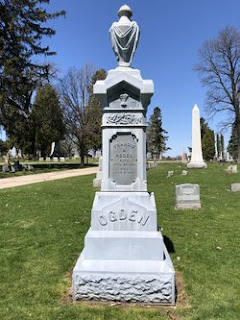The Teacher Within: Procrastination and Estate Planning
By Melinda Gustafson Gervasi
October 2020
September of this year ushered in a new chapter in my life, being the parent of a middle schooler. Our oldest child launched his 6th grade year (virtually), bringing with it my own memories of educational growth. Some things are different -- he is in "computers" class, in my youth it was just "typing". Yet, some things remain the same. The Covid 19 Pandemic has allowed me a window into his classrooms, specifically his teachers' advice. With middle school comes longer term assignments, and hence the lecture on procrastination. A constant lecture on the educational path.
Defined as "delay or postpone action; put off doing something", he is learning that weekends pass quickly, Monday mornings loom, and he needs to make the time for his weekend music appreciation writing assignment. Already he has felt the dread of a Sunday evening spent "working" rather than resting, and the bit of panic that comes with "what if it isn't done".
“Don't put off until tomorrow what you can do today.” -Benjamin Franklin
We've all heard this quote multiple times in our lives. Yet many of us put off unpleasant tasks when they could be crossed-off our to-do lists today. This is fact I see day after day in my estate planning practice. Often it would take a death in the family, cancer diagnosis, the birth of a child, and international travel to nudge a client through my office door. In 2020 the largest nudge I have witnessed in my 15 years of practice has been Covid19. From doctors to teachers to patients with chronic illnesses, estate planning is at the top of many "to-do" lists. Thinking about creating, or updating, an estate plan is one thing. Completing the task something entirely different.
As I type the yellow, red, and orange leaves fall onto my driveway. Cars zip passed, eager to start their Friday evening plans. It's 80 in Madison on October 9th -- the outdoors calls. But, we all know dark, rainy days, followed by plunging temps and snowfall are just around the corner. If estate planning is a priority to you, do not fall victim to procrastination. The winds are blowing. Illnesses are increasing. The flu is circulating. And the local hospitals here are implementing visitor restrictions. Once it was possible for a client to complete estate planning documents from the comfort of a hospital bed. My own father was one of them. The year 2020 is different. Visitors are being restricted. Your lawyer may not be allowed to see you. Or, if you are allowed one person you may not have enough people to serve as a witness. This is not hyperbolae. Earlier in the year this was a fact. Lawyers were denied entry to hospitals, re-hab facilities, hospice centers and senior living complexes. Listen to Benjamin Franklin; if it is important to you, do it today, not tomorrow.
Thanks for reading. May you stay safe and healthy as we move towards the end of 2020. Remember, a blog is not legal advice. It is a platform to spark discussion and reflection, nothing more. It is essential you contact a lawyer in your home state for advice specific to your unique situation. Be well.
















